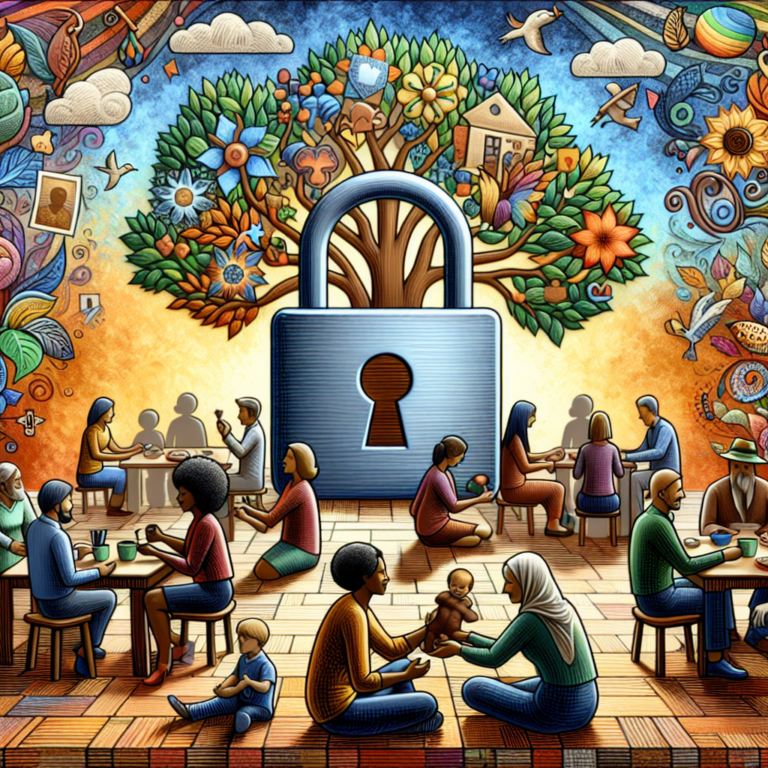Unraveling the Threads of Time: Understanding Past Life Karma
Introduction
For centuries, the notion of karma has captivated human imagination, bridging the realms of spirituality, philosophy, and psychology. Evangelized in Eastern religions and increasingly embraced in Western thought, karma is typically defined as the principle of cause and effect—every action has a corresponding reaction. However, when intertwined with the concept of past lives, karma takes on an intricate dimension that beckons further exploration. What does it mean to carry karmic debts from previous existences? How do these debts influence our current lives, relationships, and personal challenges? This article aims to delve into the enigmatic connections of past life karma, offering insights, reflections, and practical implications for our modern lives.
The Concept of Karma
Originating from the Sanskrit word "karman," meaning action or deed, karma has a multifaceted definition. In spiritual terms, it refers to the ethical causality that governs the cycle of life, death, and rebirth (samsara). Traditionally conceptions of karma are rooted in Indian religions, particularly Hinduism and Buddhism, but various interpretations pair sacred texts with contemporary belief systems.
Karma suggests that every choice, thought, and action creates a ripple effect that reverberates through time and space. Positive actions yield beneficial outcomes, while negative actions bring about challenges and suffering. This principle transcends time, positing that the consequences of our deeds might not only manifest in our current life but could also stem from actions taken in past incarnations.
Past Life Karma: The Interconnectedness of Existence
Past life karma denotes the consequences or lessons learned from one’s previous existences impacting the current lifetime. It implies that unresolved issues, emotional scars, or personal growth hurdles may span across different lifetimes. Understanding past life karma means acknowledging that individuals carry within them not just their present experiences but also threads woven from their souls’ historical journeys.
Reincarnation and Its Implications
Reincarnation—the process through which souls undergo cycles of birth, death, and rebirth—underpins the concept of past life karma. Each life is seen as an opportunity for growth, reflection, and redemption, spurred by the soul’s aspirations to evolve. In this context, karma operates as an educational vehicle guiding the soul toward enlightenment.
The philosophy posits that lessons not learned or injustices not resolved in a previous life can resurface in the present. This is often why individuals may find themselves facing recurring challenges or entrenched patterns—situations that seem to replicate despite conscious efforts to change.
Recognizing Patterns: Signs of Past Life Karma
-
Phobias and Fears: Unexplained fears or phobias can sometimes be traced back to traumatic experiences in past lives. For instance, someone with a fear of drowning may have met such a fate previously, impacting their current emotional landscape.
-
Intense Connections: Some relationships may feel overwhelmingly familiar upon first meeting. This could signal past life bonds, whether they are positive or negative, resulting in a profound impact on the present dynamics.
-
Recurrent Challenges: Individuals may experience ongoing struggles in areas such as career, relationships, or personal growth. If one notices a persistent issue that seems to elude resolution, it may merit introspection regarding its karmic origins.
- Skills and Talents: A surprising ease or talent in certain areas—art, music, languages, etc.—can suggest karmic influences from former lives. These intrinsic abilities might reflect past endeavors where such skills were cultivated.
The Journey Towards Healing and Resolution
Understanding and addressing past life karma is not merely an intellectual exercise; it comprises a journey of healing, reflection, and personal growth. Here are approaches to recognize and navigate past life influences:
-
Self-Reflection and Meditation: Engaging in self-reflection or meditation can open gateways to deeper understanding. Guided meditations or past life regression therapy facilitated by trained practitioners allow individuals to explore memories and experiences from prior existences.
-
Shadow Work: Exploring the "shadow self," as introduced by psychologist Carl Jung, helps individuals confront and integrate repressed experiences, emotions, or unresolved issues, fostering healing and potential karmic resolution.
-
Therapeutic Modalities: Engaging in psychotherapy, energy healing methods like Reiki, or practices such as yoga can also facilitate the understanding and release of past life karma. These approaches empower individuals to break free from established patterns.
- Learning and Growth: Emphasizing personal growth and lessons learned from past experiences—both positive and negative—creates sacred space for transformation. Identifying and correcting harmful behaviors contributes to a healthier karmic journey.
Moving Forward: Embracing Responsibility
While past life karma suggests a continuity of experiences, it is essential to highlight the importance of free will and personal responsibility in shaping one’s current path. Each individual holds the power to make conscious choices, thereby steering their life towards healing and growth.
In this light, acknowledging past life karma is not about self-blame or victimhood; it’s about embracing one’s capacity to learn, to evolve, and to break free from cyclical patterns. The purpose is to cultivate conscious living rooted in awareness, empathy, and self-acceptance.
Conclusion
Unraveling the threads of time through understanding past life karma is a compelling endeavor that intertwines multiple disciplines including spirituality, psychology, and philosophy. By recognizing that our current lives are influenced by past journeys, we can travel the path of healing and transformation. Embracing this holistic approach enables individuals to take charge of their spiritual evolution, fostering not only personal growth but also contributing positively to humanity at large.
FAQs
Q1: Can past life karma really affect our current life?
Yes, proponents of past life karma believe that unresolved issues, emotional patterns, and lessons not learned in previous lives can indeed influence current experiences, relationships, and challenges.
Q2: How can I discover my past life experiences?
Individuals interested in exploring their past lives can consider guided meditations, past life regression therapy, or working with professionals skilled in hypnotherapy or spiritual counseling.
Q3: Is karma always negative?
Not necessarily. While karma often addresses negative actions leading to subsequent challenges, it also encompasses positivity. Good deeds can generate positive karmic outcomes, contributing to growth and fulfillment.
Q4: Can I change my karma?
Yes, individuals can change their karma by making conscious decisions, engaging in personal growth, and addressing unresolved issues. By learning from past experiences, one can reshape their current karmic path.
Q5: What role does free will play in karma?
Free will plays a significant role in shaping one’s karma. While past actions may influence the present, every individual possesses the ability to make conscious choices and navigate their path towards healing and transformation.
It seems you may want to provide more context or specify a prompt for me to respond to. Could you please clarify what you’re looking for? Whether it’s a writing prompt, a question, or a topic for discussion, I’m here to help!, #Unraveling #Threads #Time #Understanding #Life #Karma, #Unraveling #Threads #Time #Understanding #Life #Karma, 1736458566, unraveling-the-threads-of-time-understanding-past-life-karma





